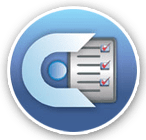It incorporates various features and security measures to create a controlled and fair testing environment for remote or online learners. Such platforms are commonly used in educational institutions, certification programs, and organizations that need to conduct assessments remotely.
Key features of a secure online exam platform include:
User Authentication: Robust user verification methods to ensure that the person taking the exam is the authorized candidate.
Secure Exam Delivery: Utilization of encryption and secure connections to deliver exam content, instructions, and materials.
Question Randomization: Randomizing questions and answer choices to prevent cheating and sharing of answers.
Browser Lockdown: A dedicated, locked-down browser to restrict access to external websites and applications during the exam.
Proctoring: Remote proctoring solutions such as video monitoring, screen recording, and AI-based proctoring to monitor and deter cheating.
Time Limits: Set strict time limits for exams to reduce opportunities for external assistance.
Question Pools: A large pool of questions from which questions are randomly selected for each student to decrease cheating.
Anti-Plagiarism Tools: Tools to check for plagiarism in written responses or essays.
IP Filtering: Restrict exams to specific IP ranges or approved locations.
Secure Data Storage: Securely store exam data and results with encryption and access controls.
User Activity Logs: Keep detailed logs of user activity for auditing and analysis.
Access Controls: Role-based access controls to limit who can create, administer, and access exam content.
Secure Exam Submission: Encrypted transmission of exam answers and responses.
Communication Channels: Secure messaging systems within the platform for student support.
Redundancy and Backup: Backup and redundancy mechanisms to prevent technical disruptions during exams.
Testing and QA: Rigorous testing to identify and fix security vulnerabilities and glitches.
Student Education: Educate students on the code of conduct and consequences of cheating.
Incident Response Plan: A plan to address security breaches and incidents during exams.
Legal and Ethical Compliance: Ensure compliance with privacy laws and ethical standards.
Feedback and Improvement: Collect feedback for continuous improvement of the platform's security and user experience.
A Secure Online exam platform is crucial for maintaining the credibility and fairness of online assessments. It helps institutions and organizations ensure that students or candidates are evaluated accurately and that the examination process maintains its integrity.







